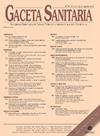Implantación de una estrategia para gestionar la multifrecuentación de urgencias hospitalarias en una zona de Barcelona
IF 1.5
4区 医学
Q3 HEALTH CARE SCIENCES & SERVICES
引用次数: 0
Abstract
Visits to hospital emergency departments by patients with multimorbidity, complex chronic conditions, and frailty are becoming an increasing challenge. A territorial strategy has been developed, based on automated preselection lists, a nurse case manager with specialized experience, and a multi-level territorial referral consensus. The feasibility of this approach has been demonstrated, with 368 alerts detected, 85% of which were well-selected. Age, frailty, home care percentage, Barthel index, and cognition were progressively aligned with levels of care/referral (primary, intermediate, and specialized) according to previously agreed criteria. In 2024, there is extensive structured technical information, an expanding role for advanced nursing, and well-established inter-level service resources. Therefore, through automated selection, a consensual territorial protocol of pathways and clinical profiles, and autonomous nursing assessments managing multi-frequent cases, it would be possible to achieve, in a proactive, simple, and scalable manner, an appropriate distribution of alerts across levels, consistent with the social and healthcare needs of the patients.
[在巴塞罗那的一个地区实施一项战略,以管理频繁的急诊就诊]。
患有多种疾病、复杂慢性病和体弱多病的患者到医院急诊科就诊正成为一项日益严峻的挑战。在自动预选名单、具有专业经验的护士个案经理和多级地区转诊共识的基础上,我们制定了一项地区战略。这种方法的可行性已得到证实,共发现了 368 个警报,其中 85% 的警报都是经过精心挑选的。根据之前商定的标准,年龄、体弱程度、家庭护理比例、巴特尔指数和认知能力逐步与护理/转诊级别(初级、中级和专业)相一致。2024 年,将有大量结构化的技术信息、高级护理的作用不断扩大以及完善的跨级别服务资源。因此,通过自动选择、共同商定的区域路径协议和临床概况,以及管理多发病例的自主护理评估,将有可能以主动、简单和可扩展的方式,根据患者的社会和医疗需求,在不同级别之间实现警报的适当分配。
本文章由计算机程序翻译,如有差异,请以英文原文为准。
求助全文
约1分钟内获得全文
求助全文
来源期刊

Gaceta Sanitaria
医学-公共卫生、环境卫生与职业卫生
CiteScore
4.10
自引率
5.30%
发文量
80
审稿时长
29 days
期刊介绍:
Gaceta Sanitaria (Health Gazette) is an international journal that accepts articles in Spanish and in English. It is the official scientific journal of the Sociedad Española de Salud Publica y Administración Sanitaria (Spanish Society of Public Health and Health Administration) (SESPAS).
The Journal publishes 6 issues per year on different areas of Public Health and Health Administration, including:
-Applied epidemiology-
Health prevention and promotion-
Environmental health-
International health-
Management and assessment of policies and services-
Health technology assessments-
Health economics.
The editorial process is regulated by a peer review system. It publishes original works, reviews, opinion articles, field and methodology notes, protocols, letters to the editor, editorials, and debates.
 求助内容:
求助内容: 应助结果提醒方式:
应助结果提醒方式:


